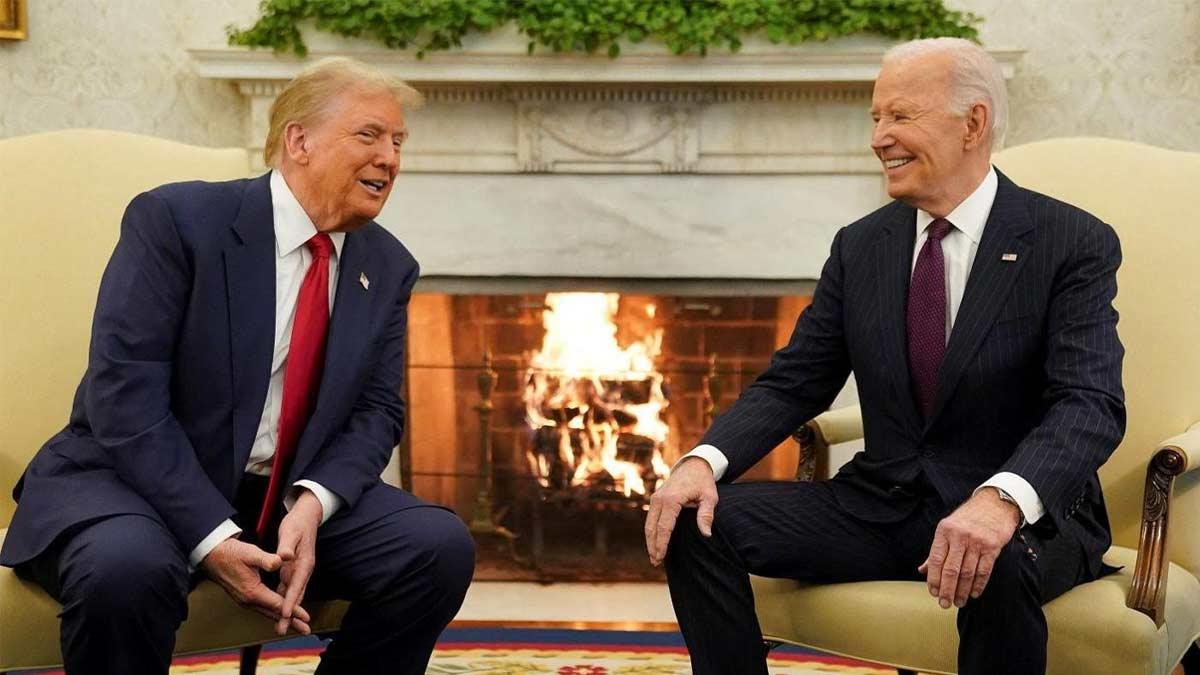Last-minute presidential pardons issued by former U.S. President Joe Biden, including one to his son Hunter Biden, have been cast into doubt after his successor, Donald Trump, invalidated them.
Trump, in a late-night message on his social media site Truth Social, said that the pardons were signed by an autopen—a machine employed to mimic official signatures—instead of Biden himself, calling into question their validity.
Trump claimed that Biden might not have been entirely aware of what he was signing on his behalf and proclaimed the pardons "null and void." Although U.S. presidents have used the autopen for official documents for many years, Trump asserted that the procedure had been abused in this case, although he did not present any direct evidence to back up his assertion.
"The 'pardons' Sleepy Joe Biden issued to the Unselect Committee of political thugs, and numerous others, are hereby declared null, void, and of no further force or effect because they were signed by autopen," Trump stated, referring to the House committee that probed him. "In other words, Joe Biden did not sign them, but more importantly, he did not know anything about them."
Trump also stated that his political enemies, along with those who got pardoned under Biden, now needed to undergo investigations. "The individuals accountable for these records could have violated a crime," he declared, suggesting that those political supporters of Biden who received pardons are at risk of prosecution.
But even with his firm declarations, Trump instructed journalists on board Air Force One Sunday evening that the courts have the final say in the legality of Biden's pardons. "It's not my call. That'll be up to a court eventually," he explained. "But I would tell you that they're null and void, because I'm positive Biden didn't know anything about this going on, and somebody used an autopen to sign these pardons."
Legal Consequences and Presidential Pardon Authority
The U.S. presidential pardon is an absolute power, conferred by the Constitution, and has historically been unreviewable by the courts. The courts, including the Supreme Court, have uniformly denied any suggestion of limiting in what manner or when pardons are issued.
In a 2024 decision, a U.S. federal appeals court ruled that a presidential pardon does not always have to be in writing, affirming that the Constitution does not place any particular procedural restrictions on the power. This legal precedent may present a major obstacle to Trump's attempt to withdraw Biden's pardons.
If Trump goes ahead with his statement and makes a formal presidential proclamation, U.S. law enforcement agencies, including the Justice Department, could be instructed to investigate those who were pardoned by Biden. This could become a high-stakes legal fight, with some of Trump's long-time political rivals facing potential repercussions.
For the time being, Trump's action calls into question whether a sitting president has the authority to undo pardons issued by a predecessor—a scenario never before tested in American history. Legal experts and political commentators anticipate that any effort to invalidate Biden's pardons will be contested in court, which could create uncertainty in setting a new precedent in executive power.
With tensions already high in Washington, Trump's announcement will only add to further controversy and exacerbate the political rift in the nation.
Read also| Danish FM Rejects U.S. Annexation Speculation on Greenland


















